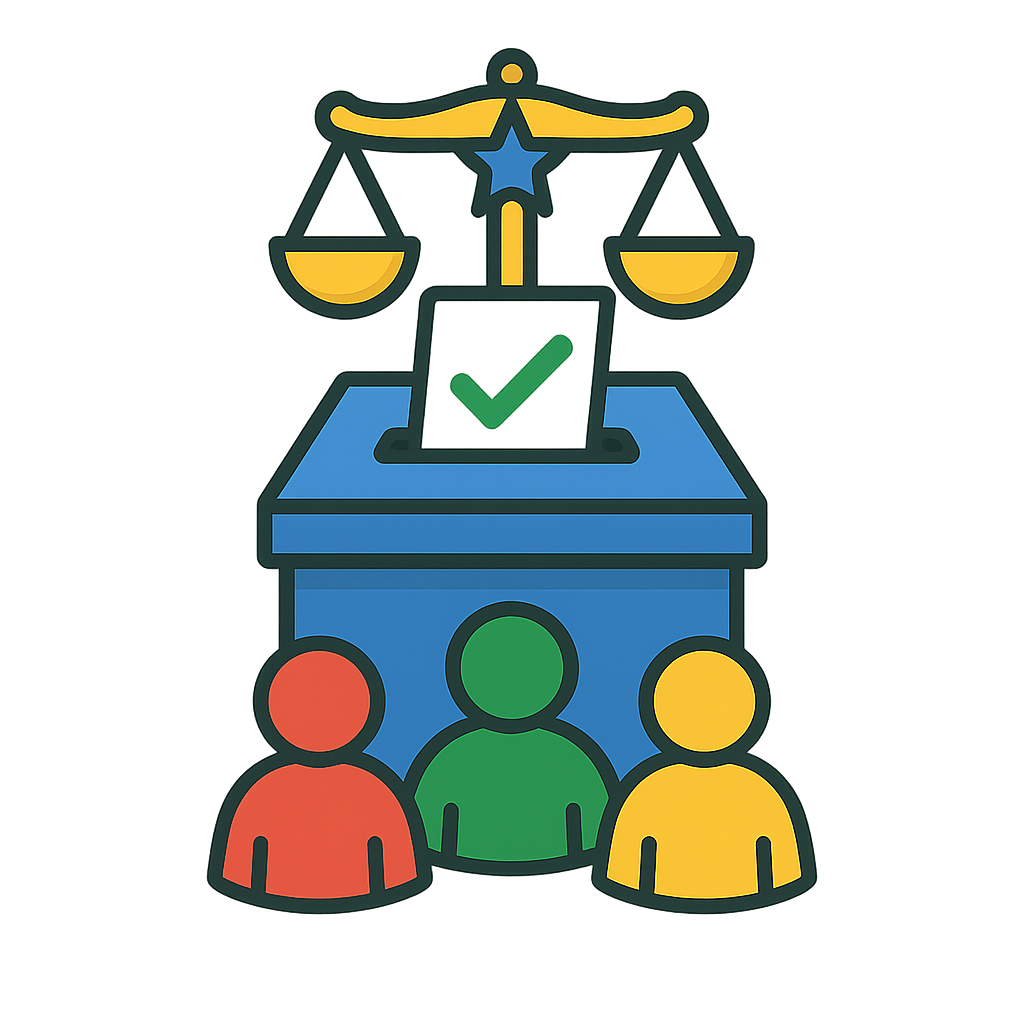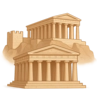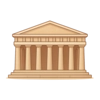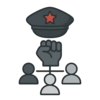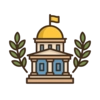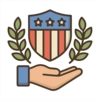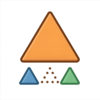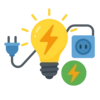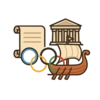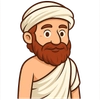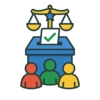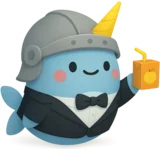The Story of Democracy
Have you ever felt that spark of fairness when you and your friends get to choose the game everyone plays? Or that satisfying feeling when your whole family votes on which movie to watch, and the winner is the one most people wanted? That feeling, that idea that a group’s voice is stronger than one person’s command, is me. For a long time, I didn't have a name. I was just a whisper in crowded marketplaces, a murmur among soldiers around a campfire, a hopeful thought in the minds of people who were tired of being told what to do by a single king or a powerful tyrant. I am the belief that a team works best when every player has a say, that a community is strongest when its people decide their own future together. I am the quiet power that builds when many people agree on a single path forward. Before I was given a formal name and a place to live, the world was often a place of singular, absolute power. One person, whether they called themselves a pharaoh, an emperor, or a king, made all the rules. Their word was law, and challenging it was dangerous. But even in those times, I was there, a question forming in the minds of farmers, merchants, and philosophers: “Why should one person have all the power? Aren’t we, the people, the ones who make this city run? Shouldn’t our voices matter?” This question was the seed from which I would grow. I was the invisible force suggesting that true strength didn’t come from a crown or a throne, but from the combined will and wisdom of the people themselves.
I was finally given a place to be born and a name to be called in a sun-drenched city of marble temples and bustling marketplaces. You may wonder who I am. My name is Democracy, and my story began in the warm sunshine of ancient Athens around 508 BCE. The name itself is a clue to my meaning; it comes from two Greek words: ‘demos,’ meaning ‘the people,’ and ‘kratos,’ meaning ‘power.’ I am, quite literally, the ‘power of the people.’ My birth wasn't a quiet affair. It was a revolutionary idea, brought to life by thoughtful leaders like a man named Cleisthenes. He and other Athenians looked at the old way of doing things, where powerful families or single, unelected rulers called tyrants made all the decisions, and they imagined something new. They imagined a city where citizens could be the government. They gathered on a hillside called the Pnyx, where thousands of them could stand together, listen to speeches, debate the issues of the day, and then vote directly on laws. They would cast pebbles into urns or simply raise their hands to make their choices known. Imagine the change! Instead of a king declaring a new law from his palace, a farmer, a potter, and a shipbuilder could all cast a vote that had equal weight. It was a radical, thrilling experiment. Now, I must admit, I was not yet perfect. In those early days, only free adult men who were citizens of Athens could participate. Women, slaves, and foreigners living in the city had no voice. I was a young idea, a brilliant but incomplete first draft. But even so, I was a monumental step forward—a declaration that the power to rule could belong to the many, not just the few.
Like any living idea, I did not stay in one place. My journey through history has been long and complicated, full of triumphs and long periods of silence. After my bright beginning in Athens, a version of me traveled to Rome, where I took on a different shape. The Roman Republic was too large for everyone to vote on every law, so they created a system of representative democracy. The citizens elected officials to a body called the Senate to make decisions on their behalf. But eventually, the Republic fell and gave way to emperors, and for over a thousand years, I was mostly forgotten as kings and feudal lords ruled Europe. I became a story in old books, a memory of a different way. A flicker of my spirit returned in 1215, on a field in England. There, a group of powerful nobles cornered the unpopular King John and forced him to sign a document called the Magna Carta. This great charter declared that even the king was not above the law, a crucial step in limiting the absolute power of a single ruler. I was stirring again. My real reawakening came centuries later, fueled by new ideas about freedom and human rights. In 1776, colonists across the Atlantic Ocean declared their independence from Great Britain. Their powerful slogan, “No taxation without representation,” was me, reborn in a new world. They fought a revolution to create a nation built on my principles, where the government’s power came from “the consent of the governed.” They, too, chose a representative democracy, creating a system where the people’s voice could shape a country's destiny.
So, what does my long, twisting journey through history have to do with you? Everything. I am not just an ancient Greek idea or a dusty document. I am alive right now, in your school, your community, and your country. When you vote for a class president, you are practicing democracy. When your town holds a meeting to decide whether to build a new park, that is me in action. I am the principle that says your voice matters, that you have a right to have a say in the rules that shape your life. But I am not automatic. I am like a garden that needs constant care. I need people to participate, to learn about the issues, to listen to different points of view with respect, and to make their voices heard. I thrive on questions, debates, and the courage of people who speak up for what they believe is right. My story is not over; in fact, it is always being written. You are the next chapter. You are the future of the ‘power of the people.’ By learning, by caring, and by one day using your voice and your vote, you will ensure that I continue to grow, to change for the better, and to empower generations to come.
Activities
Take a Quiz
Test what you learned with a fun quiz!
Get creative with colors!
Print a coloring book page of this topic.

